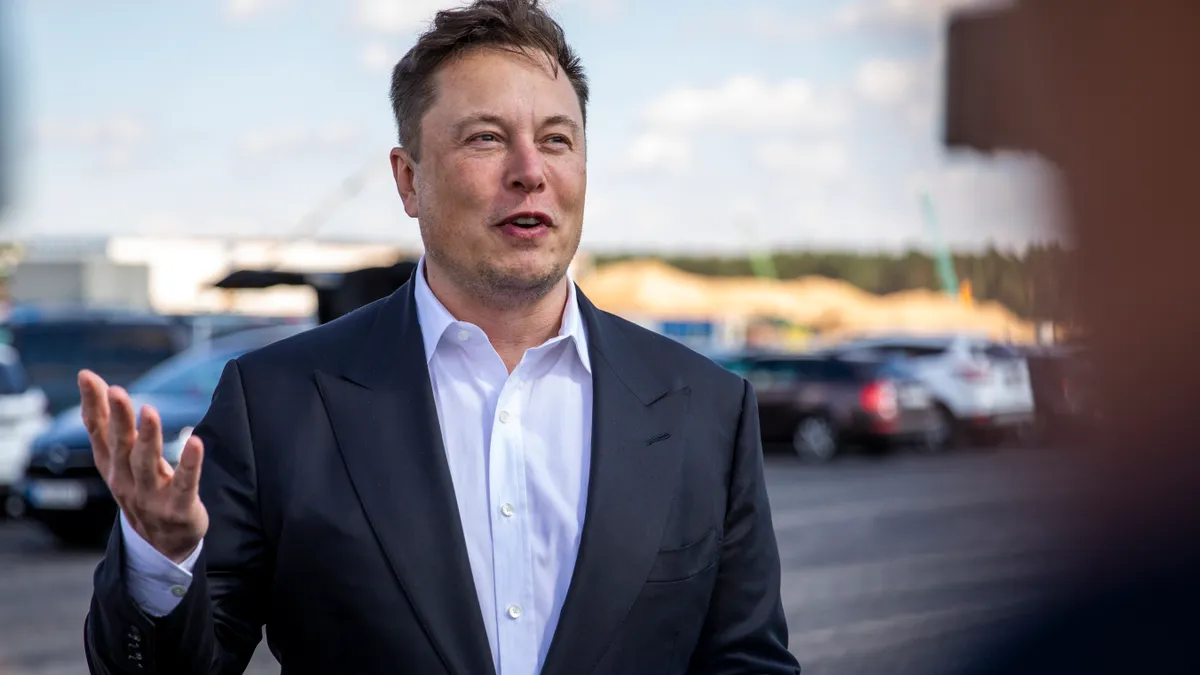A Tesla director who approved Elon Musk’s controversial 2018 pay plan says the high-profile Tesla CEO didn’t control the plan’s terms as he’s being accused of doing by a shareholder.
Musk’s pay package, which could reach as high as $55.8 billion based on the company’s valuation and the number of performance tranches he has met, is excessive and represents a conflict of interest since Musk was the controlling shareholder of the company at the time it was passed, says Richard Tornetta, the shareholder who filed suit against the company in 2018.
The dispute is being heard this week in the Court of the Chancery in Delaware by the same chancellor, Kathaleen McCormick, who oversaw Twitter’s lawsuit against Musk for performance of his agreement to buy the social media company. That suit never went to trial after Musk reversed course in late October and proceeded with the purchase.
Extraordinary pay
Plaintiff’s attorneys say the compensation – even its $2.6 billion fair-value estimate at the time it was approved – is orders of magnitude above what any other well-compensated CEO earns.
Tornetta, owner of a company that makes after-market audio gear for cars and a one-time drummer for a heavy metal band called Dawn of Correction, owns nine shares of the company. In filing the suit on behalf of all shareholders, he claims the board, in passing the plan, was only doing the bidding of Musk, whose roughly 22% share of the company at the time made him the controlling shareholder.
The board passed the plan at a vote representing about 80% of the shareholders, considered low by board standards. CEO pay packages, considered a routine board function, typically pass with at least 95% of vote shares, according to proxy advisory firm Institutional Shareholder Services, which had advised against approving the plan, Reuters reported.
In Musk’s case, the vote was even lower if the two votes cast by him and his brother, Kimbal Musk, who is also a board member, are taken out. That would have dropped the vote to 73%.
When the board vote is broken down by shareholders represented, it passed by 63,014,339 saying yes to 23,407,632 saying no.
Given those margins, the vote suggests “there is support, but skepticism” among investors, says John Trentacoste, a former partner at pay consultant Farient Advisors, according to the Reuters report.
Performance-based pay
In a 2019 court decision denying a motion to dismiss the case, then-Chancellor Joseph Slights of the Delaware Court of Chancery acknowledged the pay structure is not unlike the package approved for Musk in 2012, when the company was struggling to meet early production goals. The company back then had a valuation of about $3.2 billion and Musk’s compensation was a nominal $1 plus incentive pay based on performance against the company stock price and operational goals.
Using that 2012 package as a model, according to Slights’ decision, the compensation committee in 2018 proposed a 10-year grant of stock options that would vest in 12 tranches, each contingent on reaching market capitalization and operational milestones.
On reaching each milestone, options held by Musk representing 1% of Tesla’s outstanding shares would vest.
Because Musk’s shares are tied to outstanding shares at the time of the grant, as opposed to 1% of the fully diluted shares at the time of vesting, Musk, and not other shareholders, would absorb the cost of dilution. What’s more, options that don’t vest within 10 years are forfeited and no options will vest if Musk isn’t CEO or other top officer of the company.
By structuring the package that way, according to the decision, the board was trying to keep Musk tied to the company.
At the time the package was approved, the company was valued at around $57 billion. Its valuation rose to $1 trillion briefly in 2021, the first time a company had ever crossed that threshold, and today it’s at close to $607 billion. That means Musk stands to make $56 billion when he’s fully vested in the shares.
Entire fairness standard
By typical business judgment standards, corporate boards are granted wide latitude in approving CEO pay packages, but in his decision to deny defendants’ motion to dismiss in 2019, Slights said that an entire fairness standard rather than a business judgment standard applied, given the extraordinary pay that was at issue.
“I conclude entire fairness is the applicable standard at this pleadings stage given Plaintiff’s well-pled allegations,” Slights said.
Defense counsel are arguing that Musk stood to earn nothing if the company didn’t meet its goals, a structure that was chosen to keep the entrepreneur engaged with the company at a time when his attention was divided among Tesla, his rocket company SpaceX and several other business ventures, including the Boring Company, which digs tunnels.
“At a critical juncture for the company, the plan motivated Musk to focus his exceptional talents on Tesla when Musk’s future with Tesla was uncertain, especially given his other interests and opportunities,” defense counsel said in a court filing, according to Reuters.
They said the plan was created by the board’s compensation committee with help from outside counsel and Compensia, an advisory firm.
Ira Ehrenpreis, a Tesla board member and compensation committee member who managed the back-and-forth over the pay plan, testified this week that Musk didn’t dictate the terms of the package, which he described as “extraordinarily ambitious and difficult,” The Wall Street Journal reported.
Plaintiff’s counsel are trying to make the case that the board was too much under the influence of Musk for the vote on his compensation package to be independent of what he wanted, a breach of their fiduciary duty, and was unfair to the company.
The trial is scheduled to end this week and a decision is expected early next year, according to Reuters. The decision could be appealed to the Delaware Supreme Court.



















